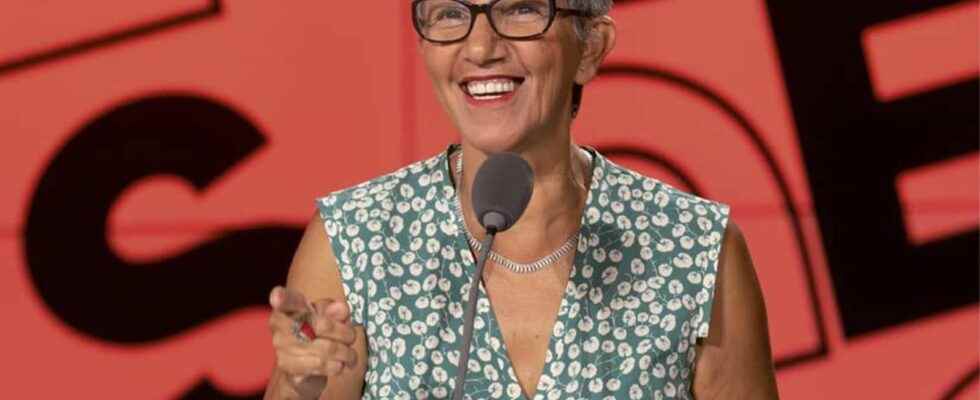One might think that our society is definitely in decline, as Jacques Julliard says, rotten by the identity, sexual and miserable claims of supposedly oppressed groups, by the intersection of misfortunes, by racists and fascists on all sides, by the self-destruction, puritanism and so on.
But now a little fresh wind is blowing over this whining swamp. It comes to us from an astonishing book in several respects. The biography of a secular Muslim written by an atheist Jewess does not happen every day. A book about a woman written by another woman, neither of whom wears the badge of obligatory membership in any feminist party.
Zohra Bitan, a big mouth made in France, seen by Liliane Messika, writer, essayist, translator and friend of the character. The life of a Frenchwoman who feels of stock, born of Muslim and poor Algerian parents.
Zohra Bitan became French to the core through culture, through adherence to the way of life, through patriotism, through unconditional (but not blind) love of France. Her journey is told by a Jewess born of Polish parents: another Frenchwoman by her culture, by her language and by her way of life. Both were socialists, both ceased to be via the ballot, both still are via their convictions. Both come from “diversity”, but at the time of the first, it was a handicap to be forgotten as quickly as possible. At the birth of the second, it had become a label with innumerable primary and secondary benefits. Both have acquired the wings of culture without forgetting their roots.
“If I had known Liliane Messika a few years ago when I was a socialist activist, I think I would have hated her,” wrote Zohra Bitan. “She too was a socialist, from the ballot, not from activism. This paternalistic and miserable left, Liliane embodied it and I did not understand why, she, the privileged, voted on the left”.
And yet, when their paths crossed, they both discovered that they were real fighters. That’s what they always are: for social justice, for access to culture. They both adhere to what the nation has best: its values, merit, success through work, secularism, culture. They both claim patriotism, against the winds and swamps of post-modernism phobic to any idea of cultural and national unity.
Dual membership
This is the story of a girl born seventh of thirteen children, whose father is a Hajj : a reference for everything related to the Muslim religion. Torn for a long time by her dual cultural and social affiliation, Zohra lived in France outside, but also in the bled inside. She is free, but attached to her parents, whose scale of values is not her own. She is a believer, but deeply secular.
Dual membership can lead to internal and external conflicts, permanent heartbreak, even guilt and self-hatred. But once the balance has been found between the two worlds, then opens up the space of tremendous freedom, creativity, empathy, source of infinite possibilities, a symbolic world rich enough to give several views instead of just one.
Zohra Bitan went even further. The balance between two worlds not being enough for her, the secular Muslim married a nominal Jew, who felt bland by his way of life.
The origins have, after all, little to do with this story. But they are always at the heart of the construction of man. As the woman plays a major role in this construction, it is Zohra who ensures that her family knows her origins: French, Algerian and Jewish, by offering her children not an in-between, but an addition of the three.
Taming symbolic spaces is one thing, living outside is another. With tremendous energy, she campaigned for the PS to improve the human condition. She is an idealist, despite all the trials that life has prepared for her. Except that she discovers there a veritable apparatus of lies, paternalism and instrumentalization of poverty, in the service of the narcissism of beautiful souls, who have nothing to do with the misery and lack of culture of those they claim to represent. She left the Socialist Party, denouncing its inefficiency, contempt for ordinary people, indifference to poverty, the hypocritical cult of “diversity”, the refusal to ask questions about militant and conquering Islam, the priority concern of the apparatchiks for their beautiful media image.
Ode to friendship
Far from all “isms”, Zohra Bitan embodies the best of what French thought has produced: freedom of thought, equality between women and men, secularism, universalism, love of the good word .
Liliane Messika describes with love, admiration and a certain literary talent the journey of this truly free, whole, honest and very human woman, inhabited by a love of others who knows what she owes to Christian charity.
This book is a tribute to universalism, to French culture and to the woman who knew how to embody it all her life. It is also an ode to friendship, a tribute to this universal mixture of souls that Montaigne celebrated in his time.
“Zohra Bitan, a Big Mouth made in France”, by Liliane Messika. Ed Jean-Cyrille Godefroy, 255 pages, €19.90.
*Yana Grinshpun is a linguist and lecturer at the University of Paris III-Sorbonne-Nouvelle. She is also co-founder of the Observatory of decolonialism and identity ideologies.
